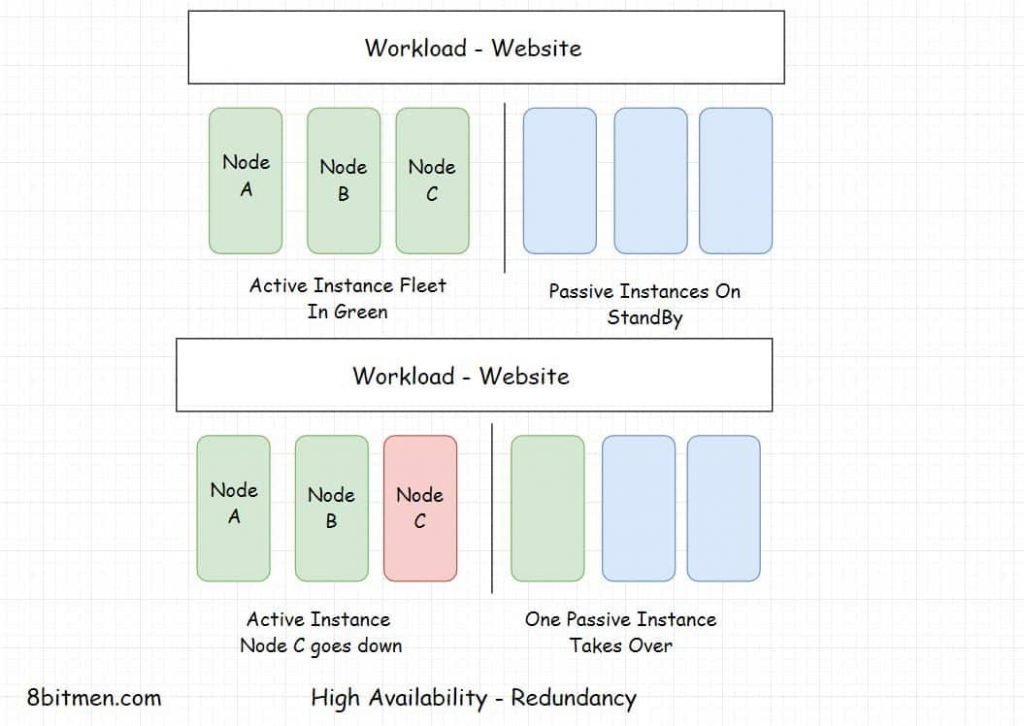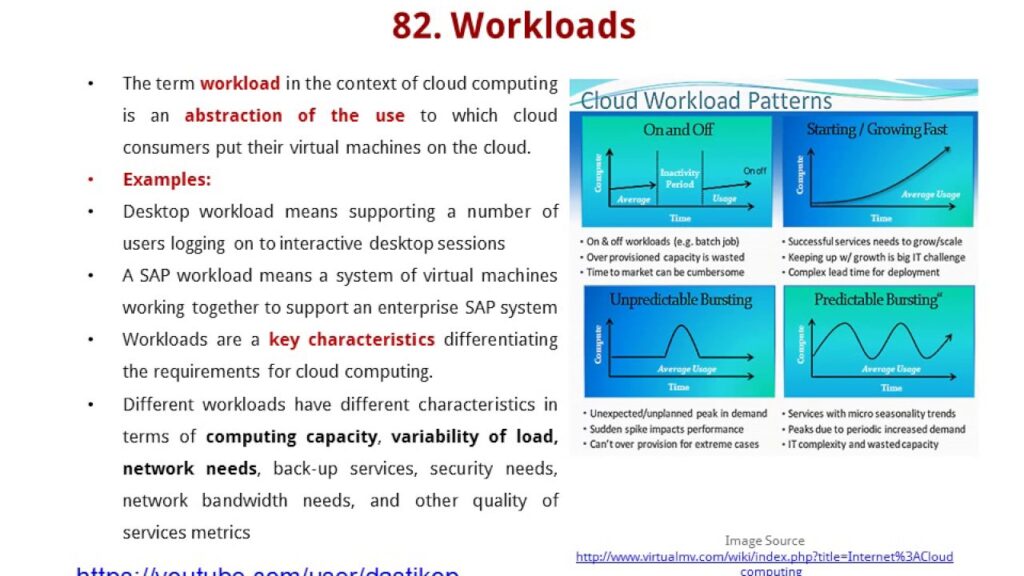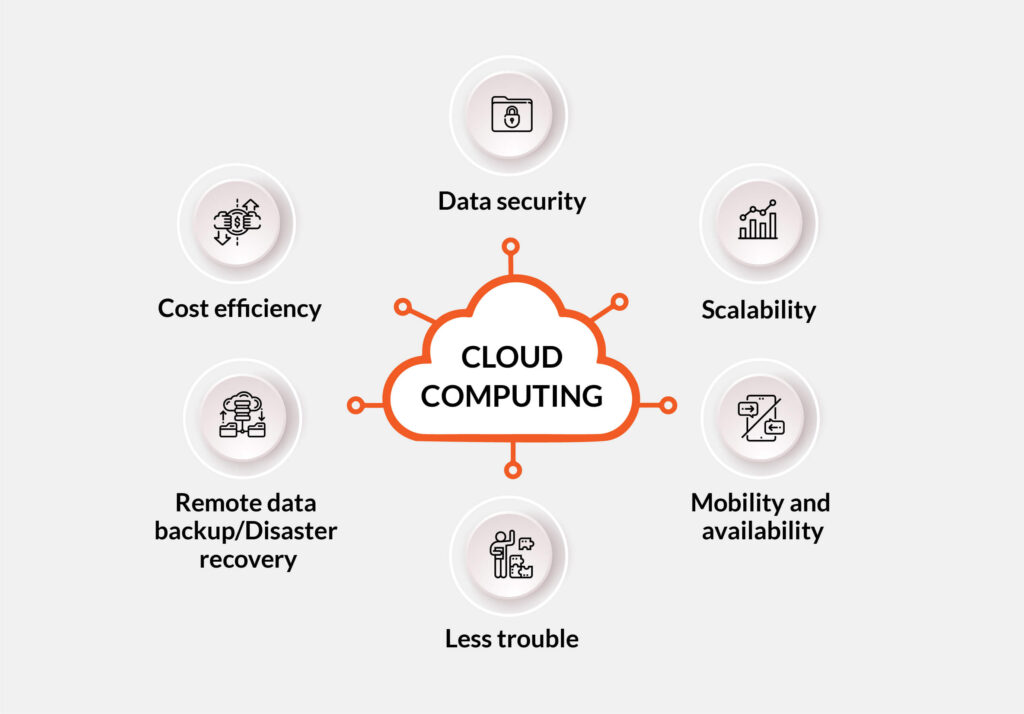Cloud computing has revolutionized the way businesses operate in the digital age, offering numerous benefits such as increased flexibility, scalability, and cost-effectiveness. One of the key concepts in cloud computing is that of an instance. But what exactly is an instance in cloud computing?
In simple terms, an instance refers to a virtual machine, a self-contained environment that operates independently within a cloud computing system. It is essentially a virtual copy of a physical server that can be created and managed within a cloud infrastructure. This allows businesses to easily and quickly create virtual machines without having to invest in physical servers, reducing costs and increasing efficiency. However, there is much more to instances than just that, and in this article, we will explore this concept in greater depth.
What is an Instance in Cloud Computing?
An instance, in cloud computing, is a logical representation of a physical server, virtual machine, or container. It is an isolated, self-contained computing environment with its own CPU, memory, storage, and network resources. Instances are used in cloud computing to provide an on-demand computing environment on which to run applications and services.
How Instances Work in Cloud Computing?
In cloud computing, an instance is a virtual environment that is based on a pre-defined template. This template contains the operating system, packages, and settings required to create the instance. Instances are created by the cloud provider, such as Amazon Web Services, Microsoft Azure, or Google Cloud Platform, and are typically billed on a pay-as-you-go basis.
Types of Instances
There are several types of instances available in the cloud, including virtual machines, containers, and serverless computing. Virtual Machines (VMs) are the most common type of instance in cloud computing. They are a full-fledged computing environment with their own operating system, memory, and storage. Containers are a more lightweight form of instance that use a shared operating system and share some resources with other containers. Serverless computing is a newer type of instance that allows developers to deploy applications without having to manage any infrastructure.
Benefits of Instances
Instances offer several benefits to cloud users. They provide on-demand, scalable computing environments that can be quickly created and destroyed. This makes instances an ideal solution for applications that need to scale up or down quickly. Additionally, instances allow users to customize their computing environment to meet the specific needs of their applications.
Drawbacks of Instances
The main drawback of instances is that they can be expensive to run. Depending on the type of instance and the cloud provider, users may be charged for both the instance itself and the underlying compute and storage resources that it uses. Additionally, if the instance is not properly configured, it can be vulnerable to security threats.
Conclusion
An instance in cloud computing is a logical representation of a physical server, virtual machine, or container. Instances are used to provide an on-demand computing environment on which to run applications and services. There are several types of instances available, including virtual machines, containers, and serverless computing. Instances offer several benefits, including scalability and customization, but can also be expensive to run.
Frequently Asked Questions about Instance in Cloud Computing
An instance in cloud computing is a virtual server, or a virtualized environment, that is hosted in the cloud. It can be used for a variety of tasks, such as running web applications, hosting databases, or running data analytics.
What is an instance in cloud computing?
An instance in cloud computing is a virtual server hosted in the cloud. It is a virtualized environment, meaning it is not a physical server, but rather, a virtual machine that can be used to run applications and store data. Instances can be used for a variety of tasks, including web hosting, database hosting, data analytics, and more.
What are the benefits of using instances in cloud computing?
Using instances in cloud computing offers several benefits. First, it is cost-effective and scalable, meaning it can be easily expanded or reduced as needed. Additionally, instances can provide high availability, meaning they are always available when needed, and can be quickly moved to different locations. Finally, cloud-hosted instances provide access to powerful and reliable computing resources without the need for on-site hardware.
What are the different types of instances in cloud computing?
There are several different types of instances in cloud computing. The most common type is an Amazon Web Services (AWS) instance, which is a virtual machine hosted on the AWS cloud. Other types include Google Compute Engine (GCE) instances, Microsoft Azure instances, and IBM Cloud instances. Additionally, other cloud providers may offer their own proprietary instances.
How do I create an instance in cloud computing?
Creating an instance in cloud computing is relatively straightforward. First, you must select a cloud provider. Then, you will need to select the type of instance you want to create, such as an AWS instance, and configure the instance with the necessary resources, such as CPU, RAM, and storage. Finally, you will need to install the necessary software and applications to run on the instance.
How do I manage an instance in cloud computing?
Managing an instance in cloud computing can be done using a variety of methods. First, you can use the cloud provider’s management interface to configure and manage the instance. Additionally, you can use third-party tools, such as Chef or Puppet, to automate certain aspects of managing the instance. Finally, you can use scripting languages, such as Python or Bash, to create custom scripts to manage the instance.

What Are Azure Instances?
In conclusion, an instance in cloud computing is a powerful tool that enables businesses and individuals to access computing resources on demand. It is a virtual machine that runs in the cloud and provides users with the computing power they require to run their applications and services. With instances, users can choose the amount of computing power they need and pay only for what they use. Additionally, instances can be easily scaled up or down, depending on the user’s needs, making them a flexible and cost-effective solution for a wide range of computing needs.
Overall, instances are a key component of cloud computing, providing users with the resources they need to run their applications and services. They offer a powerful, flexible, and cost-effective computing solution that is ideal for businesses and individuals alike. Whether you’re looking to run a small website or a large-scale application, instances can provide you with the computing power you need to get the job done. So, if you’re looking for a reliable and efficient computing solution, be sure to consider instances in cloud computing.




